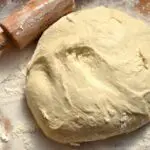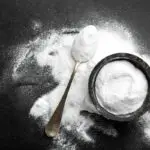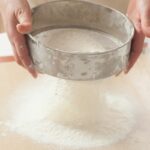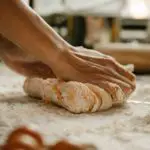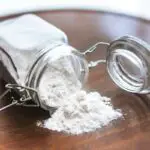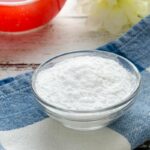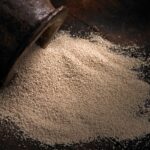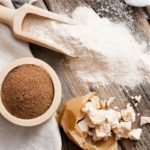A big part of baking is knowing which ingredients influence one another, and how.
This is particularly important when it comes to baked goods like bread because in order to make bread rise, a chemical leavening reaction needs to take place.
Some people think you shouldn’t add baking powder to bread that contains yeast because it will kill the yeast in the bread.
However, that’s not actually the reason why it’s not recommended to use these ingredients together.
Read on to find out how baking powder and yeast interact in bread recipes, and whether baking powder really does kill yeast in bread.
The Difference Between Baking Powder And Baking Soda
Before we get started, it’s important to clarify the difference between baking powder and baking soda.
Although these terms are sometimes used interchangeably in the baking community, these are different ingredients that have different effects on bread.
While baking soda is sodium bicarbonate, baking powder also tends to contain cornstarch and cream of tartar.
The reason baking powder and baking soda are often conflated is that they’re both leavening agents. The same is true of yeast.
Why You Shouldn’t Add Baking Soda To Yeast Bread
While a select few recipes involve combining baking soda and yeast, this is not common, especially in bread baking.
That’s because, while adding baking soda to bread dough that already contains yeast would produce more gas, there is such a thing as too much carbon dioxide when it comes to baking bread.
Baking soda is stronger than baking powder, and it will create a lot of carbon dioxide – potentially, so much that your dough won’t be able to hold it and will deflate.
So, generally speaking, it’s not a good idea to combine baking soda with commercial yeast. But what about baking powder?
Would this cause more of a leavening effect, or kill the yeast altogether? Let’s find out.
Will Baking Powder Kill Yeast In Bread Dough?
The short answer to whether adding baking powder to bread dough will kill the yeast is no, it won’t.
It’s common knowledge that using both yeast and baking powder to bake bread is not a good idea, but that’s not because the baking powder might kill the yeast.
While salt and sugar can damage the yeast cells in your bread by absorbing their water, the same is not true for baking powder.
Why Not Add Baking Powder And Yeast To Bread?
The main reason you shouldn’t use baking powder in bread that already contains yeast is because a strong gluten network is required to make dough rise.
Gradual stretching of the gluten through carbon dioxide pockets helps the dough to expand slowly while maintaining its structure.
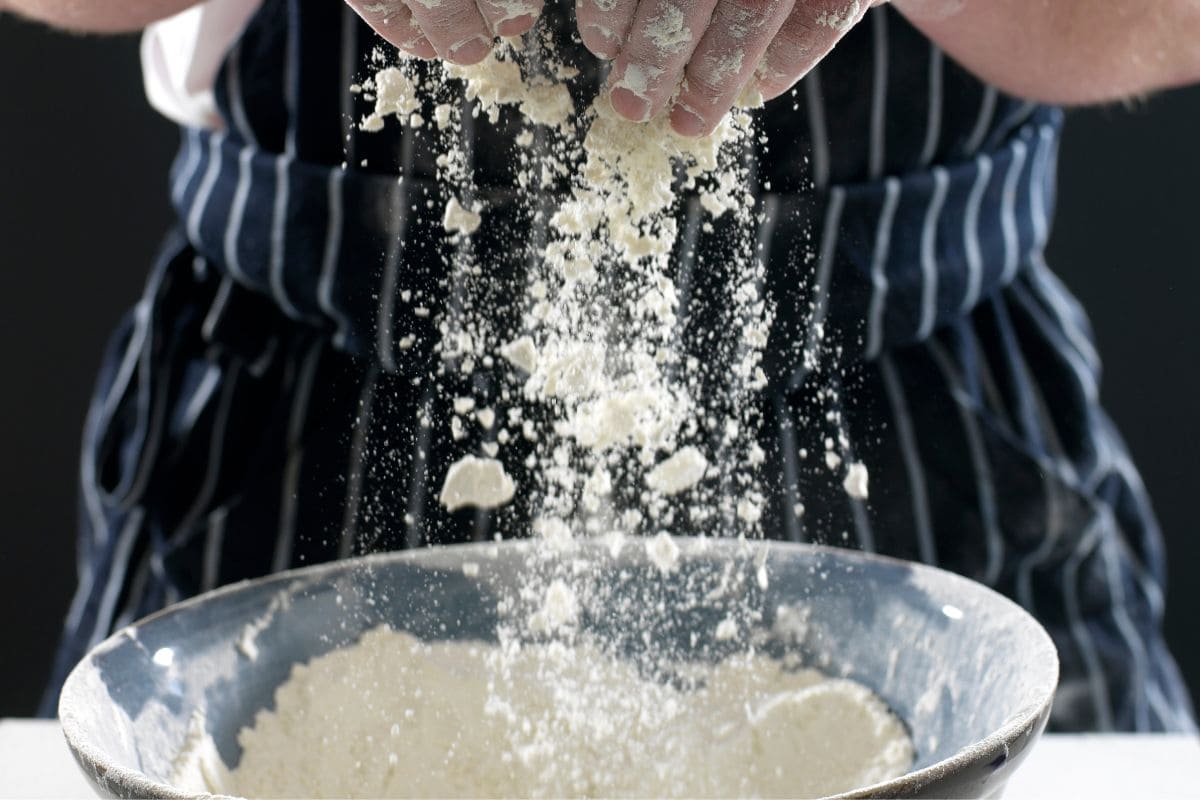
However, just like baking soda, baking powder can cause the gas to accumulate too quickly, which may lead to deflated dough.
Additionally, because yeast bread needs to be left to rise for a significant period of time, the baking powder will probably lose its potency as a rising agent during the proofing time.
It’s worth noting that some kinds of bread, such as soda bread, do not require any yeast. With soda bread, you would add both baking soda and baking powder as a leavening agent.
However, there is no point in adding baking powder as well as yeast to bread.
Does Adding Baking Powder Help Bread Rise?
Although adding baking powder to bread that already contains yeast may speed up the leavening reaction, it will probably not help your bread to rise. As we’ve already mentioned, the increased gas production can damage the stability of the bread.
Adding baking powder in the absence of yeast, however, may help it to rise because baking powder on its own will produce gas slowly enough to avoid deflating the dough.
This only works well for certain specific kinds of bread, however, since baking powder loses its efficacy when it’s left to sit for too long.
Frequently Asked Questions
Is Yeast Better Than Baking Powder for Bread?
For most kinds of bread, yeast is a better choice of leavening agent because it can withstand long proofing times before baking and allows for gradual rising that doesn’t damage the gluten network.
Additionally, the yeast is partially responsible for the flavor most of us associate with freshly-baked bread.
However, some bread recipes, such as soda bread, may recommend using baking powder and baking soda rather than yeast.
Should I Add Baking Powder To Cake?
For baked goods that are quicker to make, such as cake, your recipe may recommend adding baking powder immediately before baking.
This is because you don’t want gluten to be produced in cakes, since they’re supposed to be soft and not chewy, like bread.
By baking immediately after adding the baking powder, you don’t give the gluten a chance to form, leaving you with only the positive effect of helping the cake to rise.
What Kind Of Yeast Is Best For Bread?
There are several different kinds of yeast you can use when baking bread. Most recipes call for the use of active dry yeast.
This kind of yeast is especially good for artisan bread that needs a lot of proofing. However, if you want your bread to rise faster, you can also use instant yeast.
Fresh yeast is less commonly used in bread recipes, but if you’re making something like flatbread, which requires multiple proofing periods, it works very well.
Final Thoughts
Adding baking powder to bread dough that contains yeast will not kill the yeast, but it will basically be useless.
In fact, doing so may produce too much carbon dioxide and make your bread rise too fast, affecting its stability.
If you’re making soda bread, you should use baking soda as well as baking powder instead of yeast. However, most bread recipes call for yeast without baking powder or baking soda.
It’s generally not a good idea to add baking soda or baking powder to bread along with yeast, especially if your bread needs proofing for a long time.

